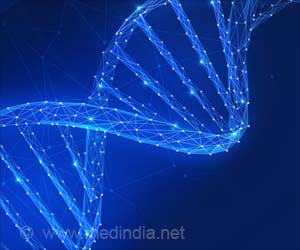Scientists have identified a new class of genes, called 'cooperation response genes' (CRGs), which can reveal a great deal about cancer cell function and may also help in finding next
A new class of genes, called 'cooperation response genes' (CRGs) that can play a role in concocting next generation cancer therapies have been identified by scientists.
The scientists have explained how a large number of genes work in tandem, leading to malignant cell transformation.They have also indicated the discovery of almost 100 genes that lead to known cancer-causing mutations, and hence provide a number of new opportunities for intervention.
"We believe that we have found a cornerstone for development of new treatments that ultimately will allow selection of drugs and drug combinations from a pool of compounds directed against these new genes. However, much more work needs to be done to explore how our findings may lead to successful targeting of various cancer types and cancer stem cells," Nature quoted lead author Hartmut Land, Ph.D., as saying.
Usually, targeted cancer therapy, such as the drug Gleevec, is based on a keen understanding of cancer mechanism, but despite much research, a clear roadmap leading to dozens of new molecular targets, is still a mystery.
Land has been one of the scientists to discover that malignant cell transformation required multiple mutations in distinct cancer genes and since then, he has been continuing to study the cooperative nature of this process and the inner workings of cancer cell function.
He said that his research team started testing, at the genomic scale, if genes responding synergistically to cooperating oncogenic mutations might act as the "drivers" toward malignancy.
Advertisement
After studying a subset of the CRGs, it was found that 14 of 24 CRGs played a vital role in tumour formation. On the other hand, just one of 14 genes responding in a non-synergistic manner (non-CRGs) showed a similar effect.
Advertisement
Ras activation and p53 loss-of-function works cooperatively work through the CRGs, which encode proteins that regulate cell signaling, cell metabolism, self-renewal, cell differentiation and cell death.
"Indeed, CRGs may provide us with a surprisingly large and valuable set of targets for interventions that will destroy cancer cells and leave normal cells unharmed. We are very excited with the results," said Land.
The study is published in the journal Nature.
Source-ANI
RAS/L











